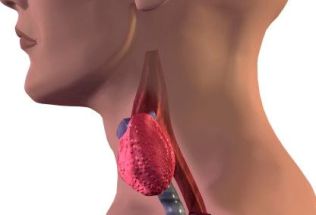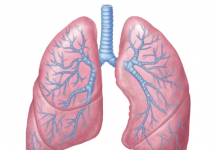Hashimoto’s thyroiditis or chronic lymphocytic thyroiditis is an autoimmune disease, in which your body’s own T-cells attack the cells of the thyroid gland.
Hashimoto’s thyroiditis is one of the most regular causes of primary hypothyroidism in North America.
Thyroid gland is an essential part of our endocrine system and the hormones produced by this gland are responsible for various body activities, from digestion to metabolism to reproduction.
People with this disease have weak immune system that often attacks the thyroid gland. The resulting inflammation often causes an underactive thyroid gland.
Basically, thyroid gland releases two hormones, one is thyroxine (T-4) and the other is triiodothyronine (T-3). These hormones balance the rate at which the body uses carbohydrates and fats and also help to control the body’s temperature, influence the heart rate and also help to regulate the formation of protein.
The production of these hormones is restricted by the pituitary gland and hypothalamus. Hypothalamus indicates the pituitary gland to produce thyroid stimulating hormone (TSH). The amount of TSH depends on the quantity of thyroxine and triiodothyronine detected in the blood.
In people with chronic lymphocytic thyroiditis, immune system generates antibodies that harm the thyroid gland. Also, this condition causes thyroid gland inflammation that can damage the capability of the thyroid to generate hormones. Finally, this condition leads to inactive thyroid gland.
Symptoms of chronic lymphocytic thyroiditis:
This disease doesn’t produce distinctive signs and symptoms. Progression of the disease is very slow and cause persistent thyroid damage thus leading to underactive thyroid gland or hypothyroidism.
Based on the extent of hormone deficiency, signs and symptoms vary. During the initial stages, you will notice symptoms like fatigue and sluggishness. The most common signs and symptoms of Hashimoto’s thyroiditis include:
- Dry and pale skin
- A puffy face
- Constipation
- Greater sensitivity to colds
- Hoarse voice
- High blood cholesterol levels
- Rapid weight gain i.e. increasing more than 10-20 pounds.
- Tenderness, stiffness, and muscle aches, particularly in your hips and shoulders
- Stiffness and pain in the joints
- Swelling in the knees or other small joints in feet and hands
- Depression
- Muscle weakness, particularly in lower extremities
- Prolonged or excessive menstrual bleeding (menorrhagia)
Chronic lymphocytic thyroiditis treatment:
Treating Hashimoto’s thyroiditis includes observation and usage of medications.
Synthetic hormones: Replacement therapy for thyroid hormone deficiency is a way to treat chronic lymphocytic thyroiditis. Usually, it involves taking synthetic thyroid hormones levothyroxine such as Levoxyl, Levothroid and Synthroid. Levothyroxine is similar to thyroxin. Ask your doctor for right dosage because excessive intake of this hormone can lead to bone loss that worsens osteoporosis.
Other substances: Some other substances like multivitamins, cholestyramine medication, aluminum hydroxide, calcium supplements, and sucralfate also help in treating Hashimoto’s thyroiditis.














